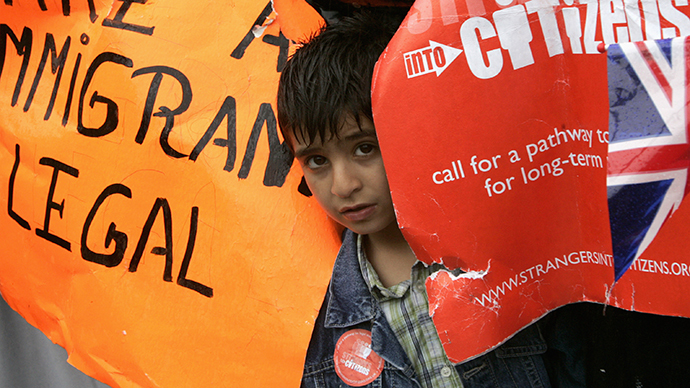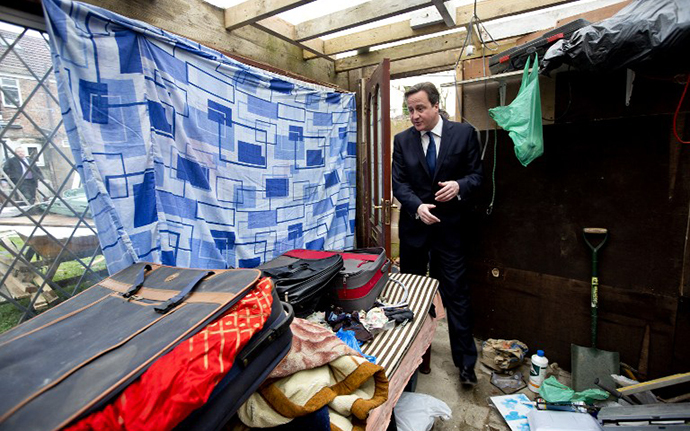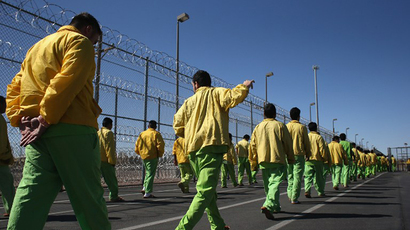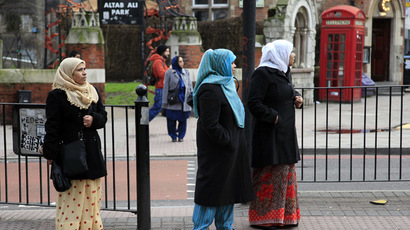Britons reporting record levels of anti-immigration attitudes

Despite potential risks to national economic performance, 77 percent of Britons want reductions in the number of new arrivals to their country, according to the findings of a new public opinion poll.
A whopping eight out of 10 Britons now believe that immigration
rates should be limited, with almost six in 10 supporting
significant reductions in the number of foreigners allowed in,
according to the latest findings from the British Social
Attitudes
survey, which has been tracking public opinion for more than
three decades.
The study, which polled more than 3,000 people, discovered that
77 percent want immigration numbers decreased, with just four
percent favoring an increase.
Fifty six percent favor reducing the number of new arrivals
“a lot” – a record figure. In 1995, when the question
was first posed to Britons, just 39 percent supported major
reductions, while two years ago only 51 percent held the view.
Surprisingly, 54 percent of individuals who view immigration as a
positive factor for the economy still want to see immigration
reductions, including one full quarter who would favor
“severe reductions.” Among those who believe immigration
is culturally beneficial to the nation, 55 percent still support
greater limitations.
One in three Britons now support the view that immigration
stimulates Britain culturally, as opposed to 45 percent who
believe it is outright dangerous.
The number of Britons, including immigrant families themselves -
advocating a large reduction in immigration numbers has surged by
more than 40 percent since before the expansion of the European
Union. However, the poll shows a dramatic divide along class
lines, with high-paid, highly educated individuals twice as
likely as people from middle- and lower- income families to see
immigration in glowing terms.

Even those who support the idea that immigration has helped Britain’s economy and enriched its culture, majorities now want to see it slashed.
One individual who holds such views is Nigel Farage, leader of the right-wing UK Independence Party (UKIP), who wants a five-year ban on people coming to settle in Britain while immigration policy is amended. .
"If you said to me do you want to see another five million people come to Britain, and if that happened we would all be slightly richer, I would say, do you know what, I would rather we were not slightly richer,” he told BBC Radio 4.
"I would rather we had communities that were rather more united and we had a situation where young unemployed British people had a realistic chance of getting a job, so yes I do think the social side of this matters more than the pure market economics."
Meanwhile, Business Secretary Vince Cable, whose Liberal Democrat party shares power with the Conservatives, said Prime Minister David Cameron's goal of cutting net migration to Britain to "tens of thousands" by 2015 was "not sensible." Speaking in a BBC documentary, The Truth About Immigration, Cable said Britain was powerless to control migration inflows from the European Union, not to mention the number of Britons returning from abroad.
He said the Liberal Democrats had never endorsed Cameron's
"arbitrary" efforts to reduce net migration to under
100,000 before the next general election in May 2015.
In November, Britain scrapped a
plan to force people from India, Pakistan, and some African
countries to pay a cash deposit in return for a six-month visa.
Officials said the money would be refunded as the person left the
country upon expiration of their visa. The plan was intended to
serve as a deterrent to foreigners overstaying their visas.















